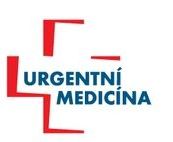INTRODUCTION
- Contents
- Editorial – Jana Šeblová
DISASTER MEDICINE
- Self-assessment of knowledge of medical students in disaster medicine and CBRN in Czech Republic – Lucie Křivohlavá
GUIDELINES
- Explanation of some terms concerning triage of patients with severe trauma – Consensual statement of the Czech Society for Emergency and Disaster Medicine CzMA JEP and the Czech Society for traumatology CzMA JEP
EDUCATION
- Analysis of the possibilities for further education of paramedics – David Peřan
ETHICS, PSYCHOLOGY, LAW
- The needs of health care workers – Do we know them? – Jana Šeblová, Miroslava Janoušková, Pavla Brennan Kearns, Marie Kuklová, Eva Kočovská, Jaroslav Pekara, Matěj Kučera, Jan Vejvalka, Dominika Šeblová
INFORMATION
- Emergency medicine congresses during autumn 2023 – Jana Šeblová
ABSTRACTS
SELF-ASSESSMENT OF KNOWLEDGE OF MEDICAL STUDENTS IN DISASTER MEDICINE AND CBRN IN CZECH REPUBLIC
Lucie Křivohlavá
Abstract
The preparedness of healthcare workers is crucial in the event of a disaster or the event involving the use of chemical, biological, radiological or nuclear substances (CBRN). In the future, medical students will have to respond to these situations as physicians in the event of a multiple victim incident. Theoretical knowledge, practical skills, and willingness of medical students to participate were determined using a questionnaire for students in the 5th and 6th year of general medicine. 89.5 % of Czech medical students did not consider themselves sufficiently educated in disaster medicine and prepared to deal with CBRN incidents. Most students would appreciate more lectures and practical exercises in this field.
Key words: self-assessment – questionnaire – CBRN – disaster medicine – medical students
ANALYSIS OF THE POSSIBILITIES FOR FURTHER EDUCATION OF PARAMEDICS
David Peřan
Abstract
The article presents an analysis of the current possibilities for studying and further education of paramedics in the Czech Republic. In visualization, the system of the College of Paramedics was adopted, which divides the possibilities into four areas – clinical practice, leadership and management, education, and research and development. Currently, the area of clinical practice and research and development is inadequately covered. It is necessary to realize that without the development of scientific research in the field of emergency medicine and non-physician healthcare professionals in emergency medicine, it is not possible to systematically strengthen the system of undergraduate and postgraduate education.
Key words: education – paramedics – bachelor’s study program – master‘s study program – development – research
THE NEEDS OF HEALTH CARE WORKERS – DO WE KNOW THEM?
Jana Šeblová, Miroslava Janoušková, Pavla Brennan Kearns, Marie Kuklová, Eva Kočovská, Jaroslav Pekara, Matěj Kučera, Jan Vejvalka, Dominika Šeblová
Abstract
Introduction: COVID-19 pandemic was a global crisis with extreme pressure on healthcare systems. The stressors were the same in the affected countries even if they could manifest in different intensity due to varied development and resources in the healthcare systems. Most of the published studies about mental health consequences on healthcare workers are quantitative studies mapping the occurence of depressive symptoms, symptoms of burnout, level of stress and other facotrs. In the presented paper, our aim was qualitative analysis of needs of healthcare workers.
Methods: We have analysed 1105 responses from a total of 2880 free answers in the three waves of the Czech HEROES study questionnaire from years 2020, 2021, 2022 and 118 responses from the survey of needs in the 2023 HEROES pilot intervention study. We used content analysis approach, and after creation of the code scheme, the data was coded in Atlas.ti programme. The codes were subsequently categorised.
Results: The needs of healthcare workers were categorised in following themes: working conditions, teamwork, support from superiors and management, patient care, work-life balance, and needs of well-being. The details regarding each category and example quotes from the respondents are presented in the paper.
Conclusion: Our analysis proved that healthcare workers start to exprress their needs not only in the field of working conditions and organization of their work but also in the context of their entire lives. They put emphasis on relations at the workplace, on support of their psychological needs and on work-life balance.
Key words: COVID-19 pandemic – mental health consequences – well-being of healthcare workers – qualitative analysis of needs
